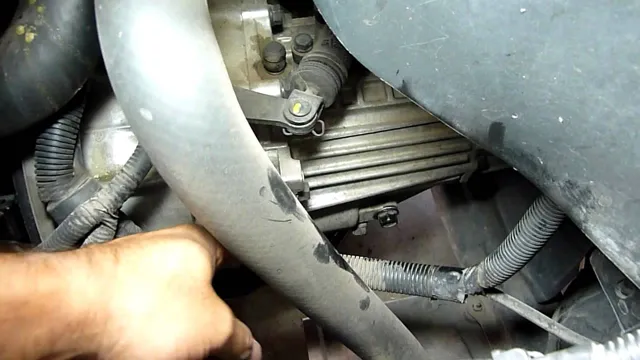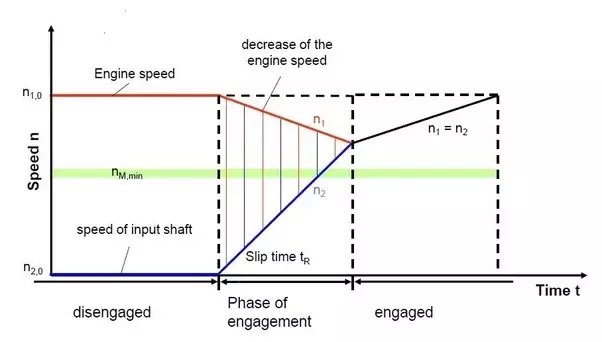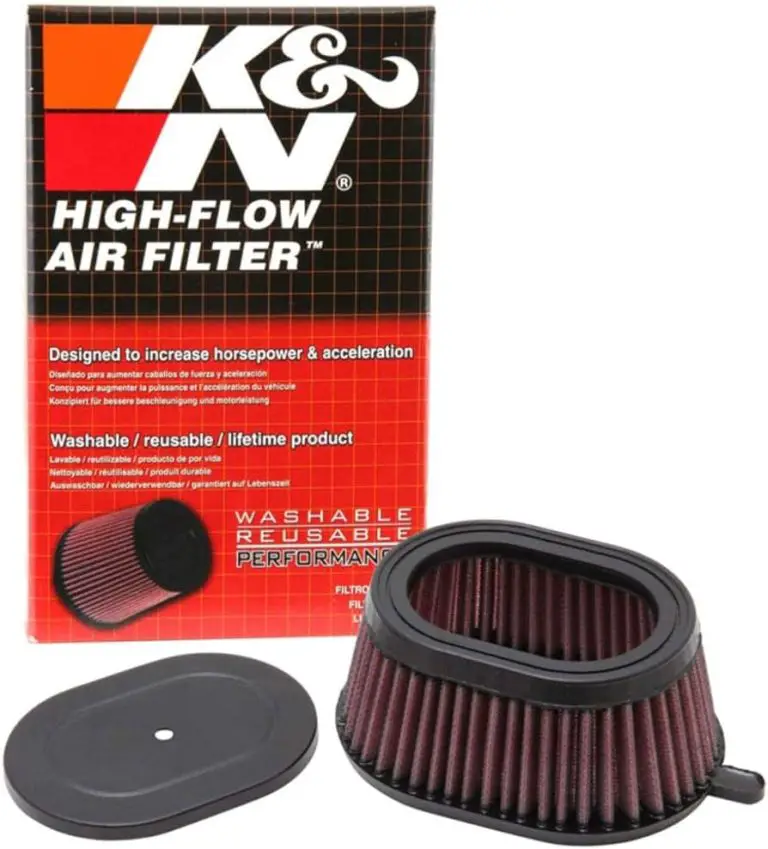Wrong Oil Filter Symptoms: What to Look Out For
Using the wrong oil filter can lead to problems with oil pressure or leaks, and it may prevent the filter from sealing properly. Symptoms of a bad oil filter include low oil pressure, poor performance, sputtering engine, metallic noise, excessively dark engine oil, dirty exhaust, crackling noises, check engine light on, reduced fuel economy, and excess hydrocarbons.
It is important to ensure that the correct oil filter is used to prevent damage to the engine.
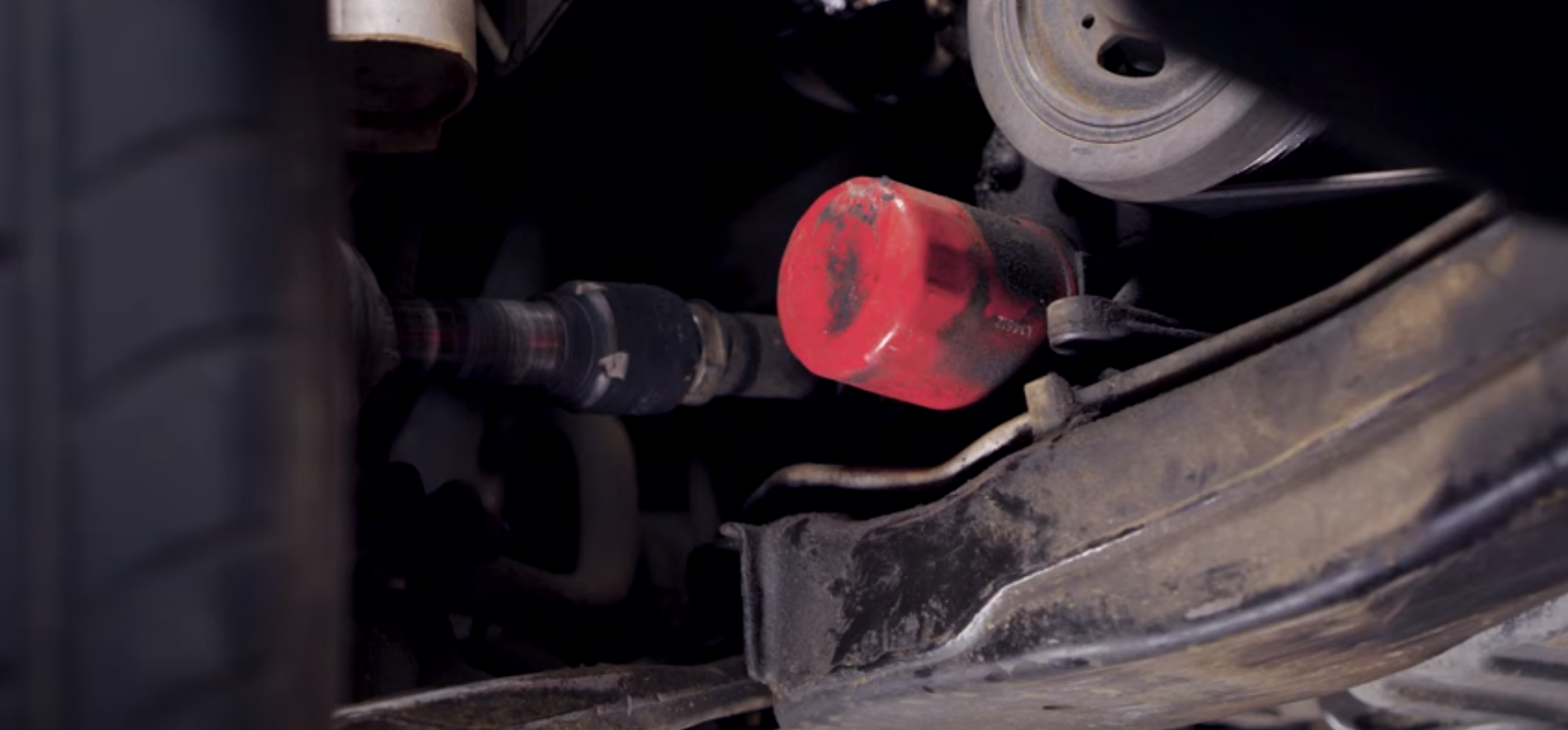
Credit: www.autozone.com
Common Wrong Oil Filter Symptoms
Symptoms of a wrong oil filter include low oil pressure, poor engine performance, and metallic noises. Look out for dark oil, dirty exhaust, sputtering, and decreased fuel economy as potential signs of a clogged filter. If ignored, engine damage and overheating may result from using the incorrect oil filter.
Low Oil Pressure
If you notice low oil pressure in your vehicle, it could be due to using the wrong oil filter. A faulty oil filter can cause restricted oil flow, leading to a decrease in oil pressure. Low oil pressure can result in engine damage and reduced performance. It is essential to address this symptom promptly to prevent further harm to your vehicle.
Poor Performance
Using the wrong oil filter can also significantly impact your vehicle’s performance. A clogged or ill-fitting filter can hinder oil flow to critical engine components, causing them to work inefficiently. As a result, you may experience a decrease in acceleration, sluggishness, or a noticeable drop in overall engine performance.
Metallic Noise
If you hear metallic noises coming from your engine, it could indicate a problem with your oil filter. When the filter fails to trap contaminants effectively, they can circulate through the engine, causing friction and abnormal sounds. These metallic noises should not be ignored, as they may suggest potential damage to engine parts.
Decreased Fuel Economy
Incorrect oil filters can also lead to decreased fuel economy. When the filter is not functioning correctly, it can cause engine inefficiency, resulting in increased fuel consumption. If you notice a sudden drop in your vehicle’s fuel efficiency, it’s worth checking if the wrong oil filter is to blame.
Excess Hydrocarbons
Using the wrong oil filter can cause an increase in hydrocarbons in your vehicle’s exhaust system. Hydrocarbons are byproducts of incomplete combustion and can indicate a fuel-rich mixture. This not only affects your vehicle’s environmental impact but can also lead to engine deposits, reduced performance, and potential damage over time.
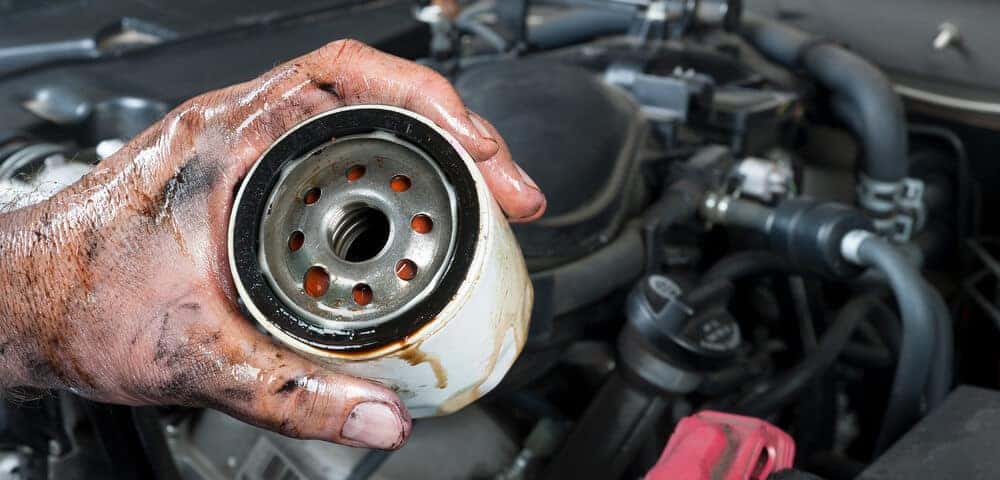
Credit: www.biggersmazda.com
Specific Signs Of A Clogged Oil Filter
Signs of a clogged oil filter include low oil pressure, poor performance, sputtering engine, metallic noise, excessively dark engine oil, dirty exhaust, crackling noises, check engine light on, reduced fuel economy, and excess hydrocarbons. Using the wrong oil filter can lead to oil pressure issues, leaks, and potential engine damage.
Dark Engine Oil Appearance
One of the specific signs of a clogged oil filter is a dark engine oil appearance. When the oil filter gets clogged, it hampers the proper flow of oil through the system. As a result, the oil can become contaminated with dirt, debris, and other impurities, causing it to turn dark. This can be easily noticed when checking the oil dipstick or through the oil filler cap. If the oil appears significantly darker than usual, it indicates a potential issue with the oil filter.Dirty Exhaust Fumes
Another clear indicator of a clogged oil filter is the presence of dirty exhaust fumes. When the oil filter becomes clogged, it restricts the flow of oil to the engine, leading to insufficient lubrication. As a consequence, the engine may burn oil, resulting in the production of dirty exhaust fumes. These fumes can appear dark, thick, and emit a noticeable smell. If you notice an increase in the smoke coming from your exhaust or a change in its color, it may be a sign of a clogged oil filter.Check Engine Light Activated
A clogged oil filter can trigger the activation of the check engine light. Modern vehicles are equipped with sensors that monitor various components and systems, including the oil filter. When the oil filter becomes clogged, it can disrupt the normal functioning of the engine, leading to abnormal readings by the sensors. As a safety measure, the vehicle’s computer system detects these abnormalities and illuminates the check engine light on the dashboard. If you see the check engine light illuminated, it is crucial to have the oil filter inspected and replaced if necessary.Oil Leaks From Filter
A visible sign of a clogged oil filter is oil leaks from the filter itself. When the filter gets blocked, it can cause a buildup of pressure within the system. This excessive pressure can cause the seal between the filter and the engine to fail, resulting in oil leaks. These leaks can be identified by the presence of oil stains or puddles under the vehicle, particularly near the oil filter housing. If you notice any oil leaks, it is essential to address the issue promptly to prevent further damage to the engine.Engine Making Knocking Noises
One of the most alarming symptoms of a clogged oil filter is the engine making knocking noises. A clogged oil filter restricts the flow of oil to the engine, causing inadequate lubrication. Without proper lubrication, the engine components can rub against each other, leading to excessive friction and heat. This can result in knocking or tapping noises coming from the engine. If you hear any unusual sounds, especially a repetitive knocking noise, it is crucial to have the oil filter checked and replaced if necessary to prevent potential engine damage.Effects Of Using The Wrong Oil Filter
Sealing Issues Leading To Oil Leaks
When the wrong oil filter is used, it may fail to seal properly, resulting in potential oil leaks.
Catastrophic Engine Damage From Oil Depletion
Incorrect oil filters can lead to oil depletion, causing catastrophic engine damage if left unchecked.
Engine Sputtering And Overheating
Using the wrong oil filter can result in engine sputtering and overheating, affecting the overall performance.
Potential Rapid Oil Pressure Drop
Improper oil filters can cause a sudden drop in oil pressure, impacting engine function and reliability.
Consequences Of Incorrect Filter Falling Off
The incorrect oil filter falling off can pose severe risks, such as engine damage and potential safety hazards.
Causes Of Oil Filter Malfunction
Using the wrong oil filter can cause oil pressure problems or leaks, and in extreme cases, the filter may even fall off, leading to catastrophic engine damage. Symptoms of a bad oil filter include overheating, stalling engine, and knocking sounds.
It’s important to ensure the proper oil filter is used to avoid these issues.
Bypass Valve Blockage
The bypass valve in an oil filter is designed to allow the flow of oil in case the filter gets clogged or encounters excessive pressure. However, when this valve gets blocked, it can lead to improper oil circulation, potentially causing damage to the engine.
Obstruction In Oil Pressure Regulator Valve
The oil pressure regulator valve regulates the flow of oil through the filter. Any obstruction in this valve can disrupt the oil flow, leading to a decrease in oil pressure and potentially causing engine damage.
Scenarios Leading To Oil Filter Collapse
There are various scenarios that can cause an oil filter to collapse, such as excessive pressure differentials or physical damage to the filter housing. These scenarios can result in the filter collapsing and obstructing the oil flow, ultimately leading to engine damage.
Malfunctioning Bypass Valve
A malfunctioning bypass valve can lead to improper oil circulation. If the bypass valve fails to open when needed, it can restrict the flow of oil, potentially causing engine damage due to inadequate lubrication.
Overall Impact
When an oil filter malfunctions due to any of the aforementioned causes, it can lead to reduced oil flow, increased engine wear, and potential damage to engine components. In conclusion, addressing oil filter malfunctions promptly is crucial to maintaining engine health and performance.
Prevention And Maintenance Tips
Prevent engine damage by recognizing wrong oil filter symptoms such as low oil pressure, dark engine oil, and sputtering engine noises. These warning signs, like reduced fuel economy and the check engine light, indicate the need for immediate maintenance to avoid costly repairs.
Regular Oil Filter Inspection
Regularly inspecting your oil filter is crucial for maintaining optimal engine performance. Check for any signs of clogging, damage, or leaks to ensure the filter is functioning properly. This practice can help you identify potential issues early, preventing costly repairs down the line.
Importance Of Using Oem Filters
Using OEM (Original Equipment Manufacturer) filters is essential for ensuring the compatibility and performance of your vehicle. OEM filters are specifically designed for your car’s make and model, providing the best fit and filtration efficiency to safeguard the engine from contaminants.
Understanding Filter Media Thickness
Understanding the thickness of the filter media is crucial in determining its filtration capabilities. Thicker filter media can capture smaller particles effectively, promoting cleaner oil circulation and prolonging the engine’s lifespan.
Proper Installation Techniques
Proper installation of the oil filter is imperative to prevent leaks, improper sealing, and potential engine damage. Follow manufacturer guidelines and ensure the filter is securely fitted to maintain optimal oil flow and pressure.
Scheduled Oil Filter Replacements
Adhering to scheduled oil filter replacements is essential for preventing potential problems associated with aging or clogged filters. Regular replacements ensure optimal filtration efficiency and promote the longevity of your engine.
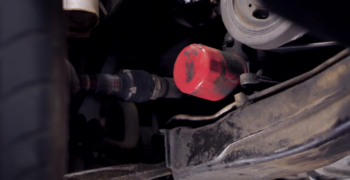
Credit: www.autozone.com
Frequently Asked Questions On Wrong Oil Filter Symptoms
What Happens If You Use The Wrong Oil Filter?
Using the wrong oil filter can lead to improper sealing, causing oil pressure problems or leaks. In some cases, the filter might even fall off, leading to catastrophic engine damage if oil levels drop. Symptoms include stalling, overheating, knocking sounds, and decreased fuel efficiency.
Regularly changing the oil filter with each oil change is important.
What Are The Symptoms Of A Bad Oil Filter?
A bad oil filter may cause low oil pressure, sputtering engine, metallic noises, and dark engine oil, leading to engine damage. Overheating and reduced fuel economy are also signs of a clogged oil filter. Ignoring these symptoms may lead to severe engine issues.
Regularly replacing oil filters is crucial.
What Happens If Oil Filter Is Not On Properly?
Incorrectly installed oil filter can lead to oil leaks, low oil pressure, engine sputtering, and potential engine damage.
Can Bad Oil Filter Cause Low Oil Pressure?
Using a bad oil filter can cause low oil pressure as it may obstruct the flow of oil or have a damaged pressure relief valve. This can lead to oil pressure issues and potential engine damage. It is crucial to change the oil filter regularly with each oil change to maintain proper oil pressure.
Conclusion
Using the wrong oil filter can lead to low oil pressure, engine damage, and potential leaks. Symptoms such as sputtering, metallic noises, and dark engine oil shouldn’t be ignored. Ensure your vehicle’s health by using the right oil filter and recognizing the signs of a failing one.
Keep your engine running smoothly.



